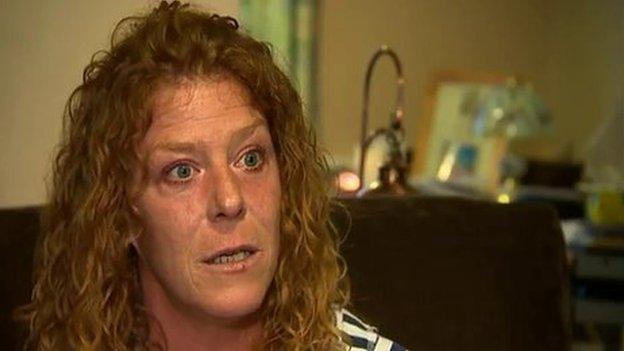Seren Bernard inquest: Teenager 'willingly exposed to harm'
- Published

Seren Bernard was living with foster carers at the time of her death
A teenager was "willingly" exposed to harm by agencies involved in her care, her mother has told an inquest into her death.
Seren Bernard, 14, was found dead in Milford Haven, Pembrokeshire, in April 2012.
The Milford Haven hearing was told she suffered hallucinations and an imaginary friend told her to do things.
Sarah Pollock claimed her daughter's care was inadequate and said she had not received sufficient therapy.
Ms Pollock told the inquest: "In my view they (agencies involved in her care) had willingly and knowingly exposed Seren to harm."
The coroner has been examining events leading up to Seren's death from when she went missing for 10 days in September 2011, until her body was found seven months later.

Sarah Pollock broke down in tears as she gave evidence at the inquest
A barrister representing child adolescent mental health support, which was responsible for Seren's therapy, said she discussed her imaginary friend "Jane" with a support worker on two occasions.
But Ms Pollock said she was never informed about that or her daughter's hallucinations.
The inquest was told Seren revealed she had had suicidal thoughts since childhood during a psychiatric assessment.
Seren's aunt, Tracy Norton, said her niece displayed odd behaviour, including sleeping on the floor and trying to pierce her lip with a school compass.
"Social services told me this was normal behaviour for a 14-year-old girl," she said.
Ms Norton added that she did not think "anybody could have saved my niece," but that things had to change and people needed to admit their mistakes.
Pembrokeshire council's barrister said the authority had to carry out a "difficult balancing act" because Seren had said she did not want to live with her family or have information passed to them.
A serious case review last year found Seren's death under the care of social services might not have been preventable and police ruled out crime.
The inquest continues.
- Published24 January 2014

- Published14 March 2014

- Published25 April 2012
